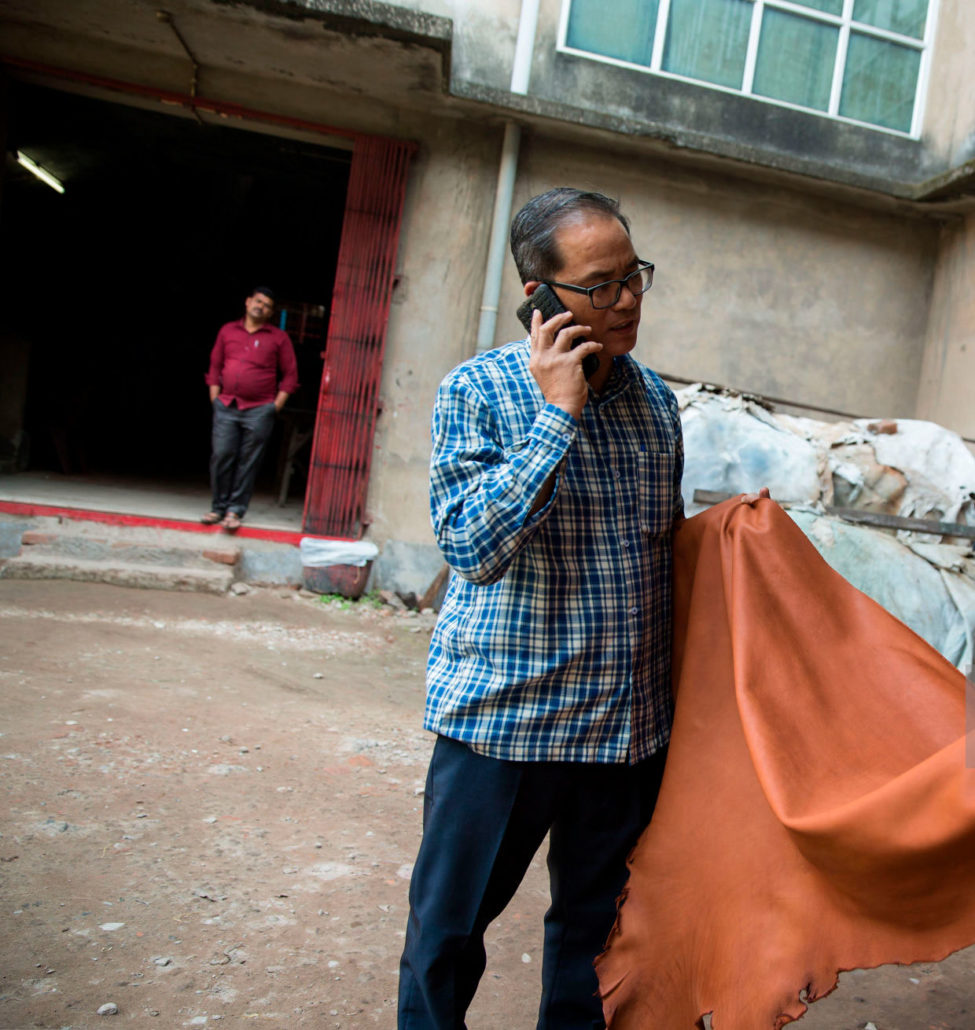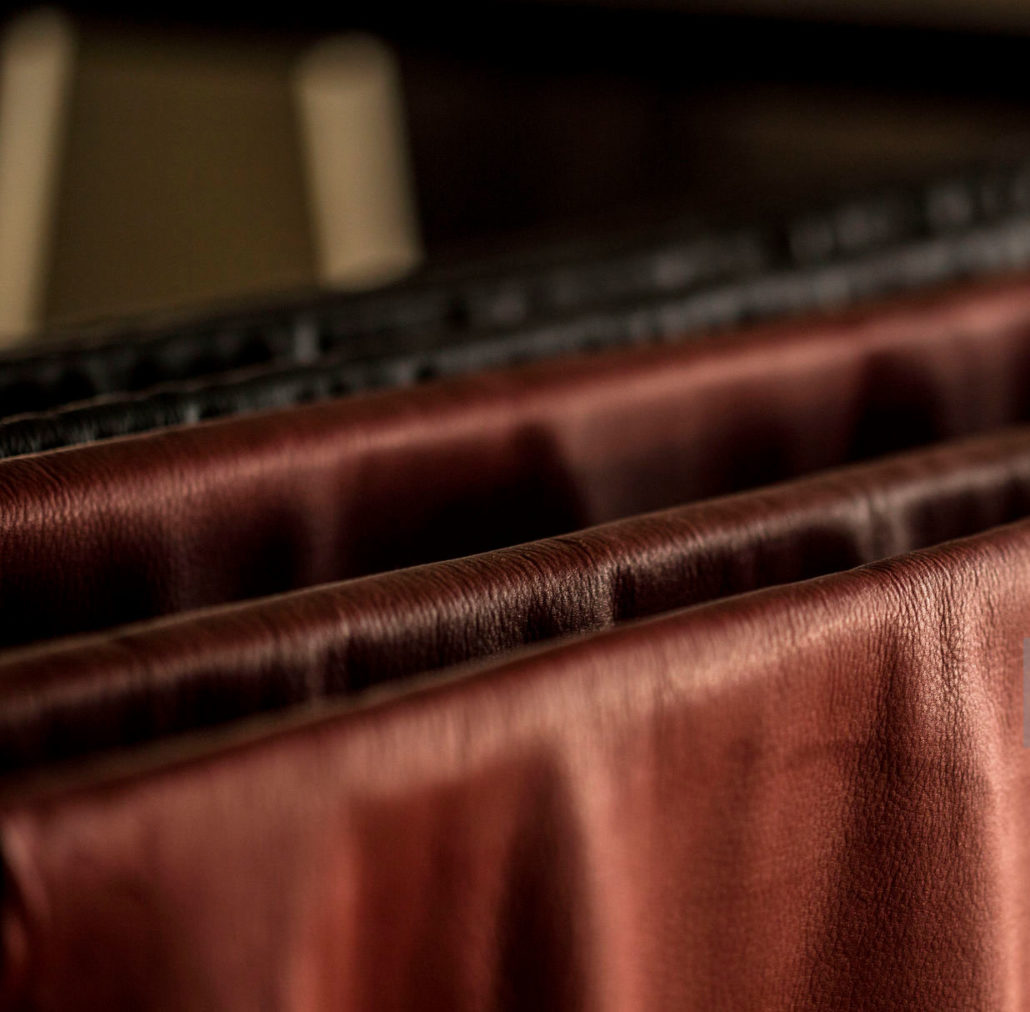COLLECTIONS FROM INDIA
MicMic cooperates with two factories and two tanneries in India.
Unlike in Ethiopia, they are in India by far both in terms of certifications, leather as well as international trade. Here I have the opportunity to get regular deliveries, which I can always trust and which help to keep MicMic going. In addition, I have the opportunity to support recognized facilities that are both really skilled at their craft as well as offering fair terms to the employees.
A NEW COLLABORATION
I have been working with one factory for almost two years.
Here, they have seriously felt the demand for more environmentally friendly solutions and the greater focus on transparency in the industry. Therefore, both are now major focus areas for them.
I takt med en voksende international efterspørgsel efter mere miljøvenligt læder, har fabrikken stillet større krav til de nærliggende garverier. Det tvinger dem til at forny nuværende metoder og udvikle bedre metoder.
Fabrikkens vifte af internationale kunder, og deres stærke relation til et af garverierne, har resulteret i at de bl.a. nu er førende indenfor krom-fri læder i området.
HVAD ER KROM-FRI LÆDER?
At MicMic, I have chosen to see the production from several aspects. I look first and foremost at the chemical treatment of the leather.
Vores indiske læder er garvet uden brug af krom, tungmetaller, formaldehyd, klorerede paraffiner, azofarvestoffer og en række andre kemikalier.
ENVIRONMENTALLY FRIENDLY MEASURES
A primary treatment plant has been installed at the tannery. The water then leaves the tannery and is sent on to a local treatment plant. Here the water is filtered and finally discharged. The process is continuously checked by the West Bengal Pollution Control Board to ensure operation.
India has longer periods of monsoon rains from June to September. Therefore, the owners of the tannery have set up a rainwater reservoir, which can be used on an ongoing basis for the tanning of the leather. In addition, their building is built in a horseshoe shape, which ensures that as much daylight as possible shines through the windows and the power can be saved during the day.
At MicMic, there is always room for improvement. That is why I am constantly working to ensure even more environmentally friendly solutions and initiatives.
THE SA8000 CERTIFICATION
When I stumbled upon this family owned factory with SA8000 certificate, I had no doubt that they were going to sew my designs.
The certification is one of the most recognized international standards for social responsibility - it is based on the UN Convention on the Rights of the Child, the Convention on Human Rights and a number of resolutions from international labor market organizations.
For MicMic, it is a big plus that the SA8000 is controlled by external control bodies. There are eight main criteria companies must follow; everything from health and safety to discrimination, working hours and pay.
This means that even though I live in Denmark, I know that the skilled employees work under safe, responsible conditions and not least get a fair salary they can live on.
The certification also ensures that the company has guidelines they must comply with every year - everything from standards, conditions and maintenance of the factory.


MICMIC'S FIRST PARTNER
In addition to the above, I have also been collaborating with a factory since 2015. They were actually among the first partners I found in India, and are the only ones I continue to collaborate with.
Af de nuværende styles hos MicMic er det Tiwi pungene, Cala Millor taskerne, Mabul nettene samt Kiri computer sleeves, der er syet her. Modellerne på webshoppen er garvet helt normalt, derfor er det også et af mine mål, at næste leverance bliver syet i krom-frit læder.
The factory follows SMETA (Sedex Members Ethical Trade Audit), which is a collection of ethical "best practices" in the workplace. When the factory is inspected, all aspects of responsible business practice are looked at: everything from health and safety to the environment and business ethics.
As with the SA8000, SMETA is designed for vendors so they can subsequently share the audit with their customers (eg MicMic).
Both of these certifications give factories a fair and good way to stay in line with market requirements - which are gradually moving towards more transparency, sustainability and fair business conditions. I would really like to support that.

